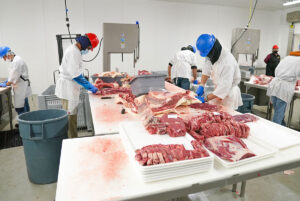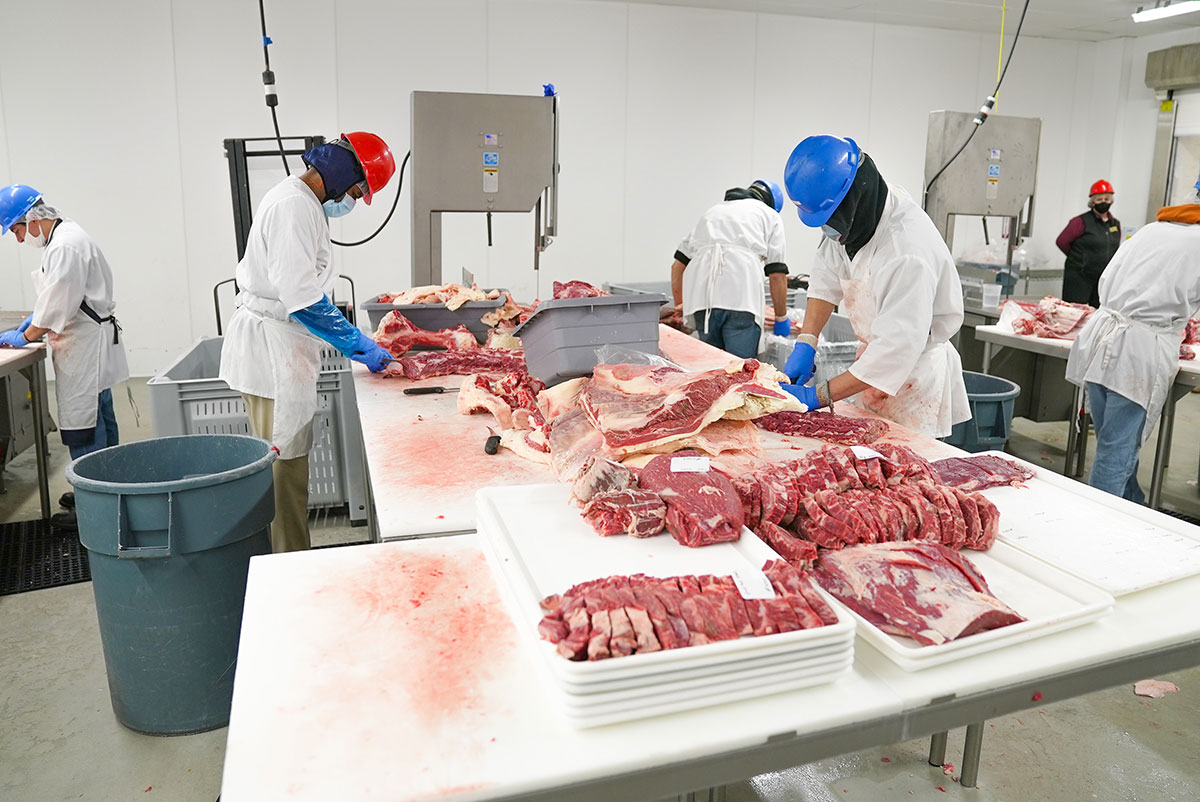Disclaimer: The information on our website is provided for general information purposes only. We make no representations or warranties of any kind, express or implied, about the completeness, accuracy, reliability, suitability or availability with respect to the website or the information contained on our website for any purpose. Any reliance on such information is therefore strictly at your own risk and we are not liable for any damages or losses arising out of or resulting from your reliance on any information contained on our website.
A butcher plays a vital role in most cultures in the world. They prepare meats for sale by cutting, trimming, and packaging the meat for retail or specifically for customer orders. The butcher works in grocery stores, processing plants, or butcher shops. Watch a video to gain a glimpse on a day in the life of a butchery apprentice.
Benefits of a Butcher

Many butchers appreciate the easy entry into their profession, which doesn’t require a college degree, although apprenticeships with reputable butchers are recommended. They enjoy the advantage of selecting the finest meat cuts and prefer a hands-on job over sitting at an office desk.
Butchers also find job satisfaction knowing people receive quality, safe meat products. With experience, they have the opportunity to open their own businesses and become their own bosses. Butchers employed by larger companies like grocery stores often receive standard benefits such as health, eye, and dental insurance, as well as paid sick leave, vacation days, and retirement options. The competitive pay and job security further enhance the appeal of this profession.
How to Become a Butcher
No educational requirements are needed to become a butcher, though some employers may want a high school diploma or the equivalent. This is one occupation where you gain experience through on-the-job training and some unions and employers offer apprenticeship programs. Butches do require a steady hand as they work with very sharp tools such as knives and meat saws. Butchers also need physical stamina and strength to stand on their feet, cut through meat, and lift weight. Some states do require a butcher to get a food handlers certificate.
Butcher Job Description
Most of us take for granted that we can go into a grocery store or butcher shop and select and purchase the meat of our choice without too much thought. We often neglect to consider what a butcher did to make that happen. Customers see the finished results of a butchers’ skill and not the work they do before it is no neatly presented for purchase. Let’s look at what the butcher does behind the scenes. A butcher’s tasks depend on whether they are an experienced meat cutter or working in a processing factory. Though the skills of properly cutting meat are relatively the same, the more experienced butcher has more responsibility and works with the more intricate cuts of meat, especially those special orders. So let’s look at what to expect as a butcher.
A new hire butcher is trained by a more experienced butcher. They learn basic skills, like removing bones, simple cuts, and dividing wholesale into retail packaging. Trainees develop the skills of shaping, rolling, and tying roasts, making sausage, and curing meat. A butcher in training may work as a meat clerk in a grocery store or shop and be presentable to the public. They typically work full time, early morning hours, evening hours, weekends, and holidays. After completion of training, they can move on to a butcher’s job.
Safety is a vital skill to learn on this job and butchers must be careful when sharping knives, cleaning tools, and using meat grinders. Food sanitation is another necessary part of the job. Butchers must know how to prevent food-borne pathogens by maintaining sanitized work surfaces and meet health sanitation standards. They must also adapt to and work in cold temperatures, typically 40 degrees Fahrenheit. Butchers understand the importance of wearing protective clothing, like heavy aprons, nonslip footwear, and cut-resistant gloves.
Once a butcher gains more experience they accomplish all tasks related to the job such as cutting meat for display, trimming, packaging meat for resale, and meeting the customer’s unique needs. Butchers weigh and wrap meat and store meat in freezers or refrigerators at their required temperature. They may also monitor inventory and sales trends to properly order meat to ensure there is no waste and enough product to sell during holidays. A butcher works full-time hours, including early mornings, evenings, weekends, and holidays. They often stand on their feet for long hours and work in cold temperatures. In a meat processing plant a butcher works in an assembly line, making the same cut repeatedly. They do not work with the public. However, the public relies on their jobs to provide the meat that the butcher prepares for purchase.

